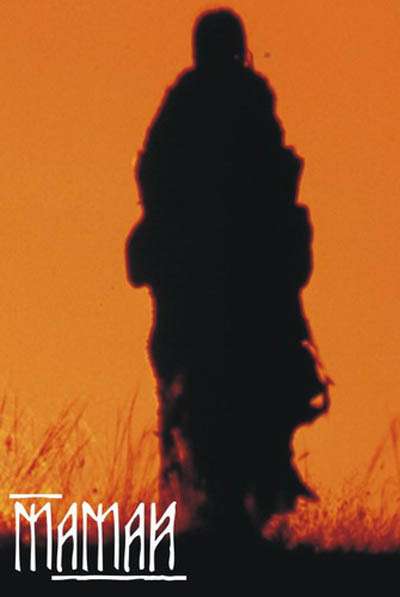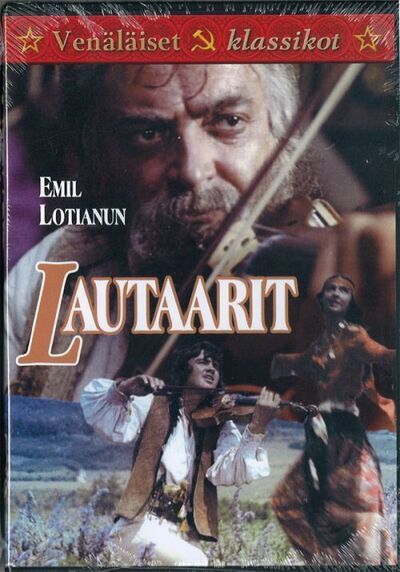The first film of Tizuka Yamasaki, a young Brazilian woman of Japanese ancestry, Gaijin: Roads to Freedom is based on the experiences of Yamasaki’s own grandmother in coming to Brazil in the wave of immigration at the turn of the century, when Japanese were encouraged to join the Brazilian labor force during that country’s coffee boom. In an effort to comply with the immigration agents’ preference for family units, a very young Titoe marries Yamada, a man whom she has never met, and the two leave for Brazil. Life on the plantation is close to slavery: workers, forced to buy food at the plantation store, are presented with falsified accounts, and at the end of the year are still in debt to the plantation. The film treats relations between Brazilian plantation owners and foremen and their Japanese laborers (a group which, traditionally, did not cause labor problems), as well as relations between the Japanese and other immigrant groups, in particular the Italians. A compelling story of a woman’s struggle to survive, spanning many years, is juxtaposed with the growing union consciousness among immigrant workers in Brazil. Read More »
Epic
-
Tizuka Yamasaki – Gaijin – Os Caminhos da Liberdade AKA Gaijin: Roads to Freedom (1980)
1971-1980DramaEpicTizuka Yamasaki -
Lars von Trier – Medea (1988)
1981-1990DenmarkDramaEpicLars Von TrierQuote:
Lars von Trier´s direction makes this film a shocking look into the disturbed mind of a woman who has been scorned and left. Medea´s revenge is horrible but never unbelievable. She does what every sane person would do, when deprived of all that she loves. The film burns itself into your mind and leaves you with a lasting impression of what human misery can be like.Read More » -
Oles Sanin – Mamay (2003)
Arthouse2001-2010EpicOles SaninUkraineQuote:
Mamay draws on traditional Ukranian and Tatar folktales for its Romeo and Juliet-like love story and parable about chivalry and the struggle for freedom. Hundreds of years ago, in the wild steppes of Crimea that form an uneasy border between East and West, Europe and Asia, nomad and farmer, the proud Cossack Mamay falls in love with the Tatar beauty Omai. The title, like the storyline, holds a variety of different meanings taken from different cultures. In Turkic languages, it means “no one,” but it was also the name of a famous Mongol conqueror, the great grandson of Ghengis-Khan. In Persian legends, mamay literally means “the spirit of the steppes”.Read More » -
Emil Loteanu – Lautarii (1973)
1971-1980CultEmil LoteanuEpicMoldovaLeader of a traveling gypsy band from the steppes of Bessarabia (now Moldova), Toma Alistar is a skilled violinist whose fame takes him on tours around European capitals and royal courts. He remains obsessed with his first love, beautiful Leanca who was married elsewhere while Toma was traveling, and spends his life and fortune trying to find her. Written by Markku KuoppamäkiRead More »
-
Marcello Baldi – Marte, dio della guerra AKA Mars, God of War (1962)
1961-1970AdventureEpicItalyMarcello BaldiSYNOPSIS
Entertaining fantasy-based peplum, starring American actor Roger Browne as the God of War.The king of Telbia defeats an African army through the intervention of the war god Mars. Remaining on Earth, Mars falls in love with the human girl Daphne, but she is forced to become a priestess in the temple of Venus. Mars tries to free her, but falls under the spell of Venus, who keeps him prisoner. Daphne, meanwhile, having violated the sanctity of the temple, is condemned to be devoured by a monster.
Director Marcello Baldi composes his shots to make full use of the Totalscope image, making this picture a must in widescreen. Highlights include the opening battle between the Greek and African armies and a Little Shoppe of Horrors-type plant monster to whom maidens are sacrificed.Read More »
-
Sergei Bodrov & Ivan Passer – Nomad (2005)
2001-2010ActionEpicKazakhstanSergei Bodrov and Ivan Passer18th century Kazakhstan, a vast, pitiless region of austere and terrible beauty, bordered by China, Russia and Tibet. Here the proud and warlike Kazakh tribes have survived and fought for centuries – against invaders, against their formidable Jungar enemies and amongst themselves.
Oraz, a mystic and warrior possessed of great powers, foretells the birth of a new star, a hero. This boy -Mansur – is destined to unite the Kazakhs, and lead them to glorious victory against their enemies. Fearful of Oraz’ prediction, the Jungar ruler Galdan orders his General, Sharish, to find the child and slay him. However, Oraz saves Mansur and delivers him to his father, Sultan Wali.Read More » -
Aleksandr Sokurov – Russkiy kovcheg aka Russian Ark [+Extras] (2002)
2001-2010Aleksandr SokurovArthouseEpicRussiaRoger Ebert wrote:
Every review of “Russian Ark” begins by discussing its method. The movie consists of one unbroken shot lasting the entire length of the film, as a camera glides through the Hermitage, the repository of Russian art and history in St. Petersburg. The cinematographer Tillman Buttner, using a Steadicam and high-def digital technology, joined with some 2,000 actors in an tight-wire act in which every mark and cue had to be hit without fail; there were two broken takes before the third time was the charm.The subject of the film, which is written, directed and (in a sense) hosted by Alexander Sokurov, is no less than three centuries of Russian history. The camera doesn’t merely take us on a guided tour of the art on the walls and in the corridors, but witnesses many visitors who came to the Hermitage over the years. Apart from anything else, this is one of the best-sustained ideas I have ever seen on the screen. Sokurov reportedly rehearsed his all-important camera move again and again with the cinematographer, the actors and the invisible sound and lighting technicians, knowing that the Hermitage would be given to him for only one precious day.Read More »
-
Theodoros Angelopoulos – Trilogia I: To Livadi pou dakryzei AKA Trilogy: The Weeping Meadow (2004)
2001-2010DramaEpicGreeceTheodoros AngelopoulosThis is the first film of Theo Angelopoulos’ trilogy. The story starts in 1919 with some greek refugees from Odessa arriving somewhere near Thessaloniki. Among these people are two small kids, Alexis and Eleni. Eleni is an orphan and she is also taken care by Alexis’ family. The refugees build a small village somewhere near a river and we watch as the kids grow up and fall in love. But difficult times of dictatorship and war are coming…Read More »
-
Theodoros Angelopoulos – To vlemma tou Odyssea Aka Ulysses’ Gaze (1995)
Arthouse1991-2000EpicGreeceTheodoros AngelopoulosQuote:
Starring Harvey Keitel, just a year after his turn in the American masterpiece Pulp Fiction and two years after the controversial indie double whammy of Bad Lieutenant and Reservoir Dogs, Ulysses’ Gaze would win multiple awards the world over, including the Special Jury Prize at the Cannes Film Festival (the film would not take the Palme d’Or, the festival’s highest honor, prompting Angelopoulos to shockingly declare, “If this is what you have to give me, I have nothing to say.”).Read More »









